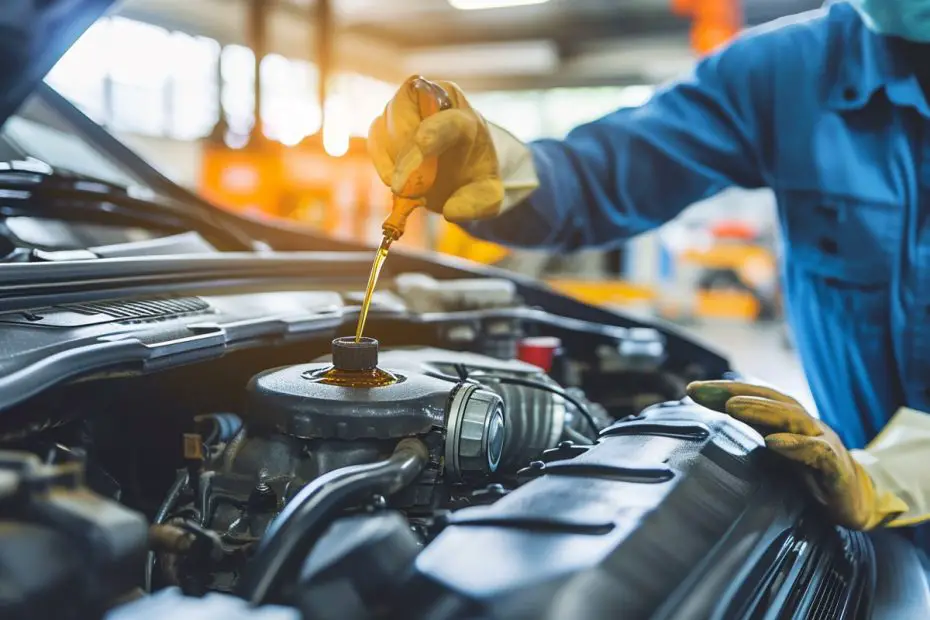Discovering your car’s burning oil can be unsettling. I’ve been there, noticing the low oil levels or that telltale smoke from the exhaust. It’s a sign something’s amiss under the hood. But what’s causing it? That’s what I’m here to help you figure out.
I’ll walk you through the common culprits behind oil consumption. From worn engine components to simple leaks, understanding these causes is the first step to getting your car back to its prime. Let’s dive into the world of engines and oil to uncover why your car might be using more oil than it should.
Understanding Oil Consumption
When I check my car’s oil level and find it lower than expected, it’s essential to understand that oil consumption is a natural part of a car’s operation. However, excessive use may suggest underlying issues. In this section, I’ll guide you through the mechanisms of how cars use oil and the factors that might increase consumption.
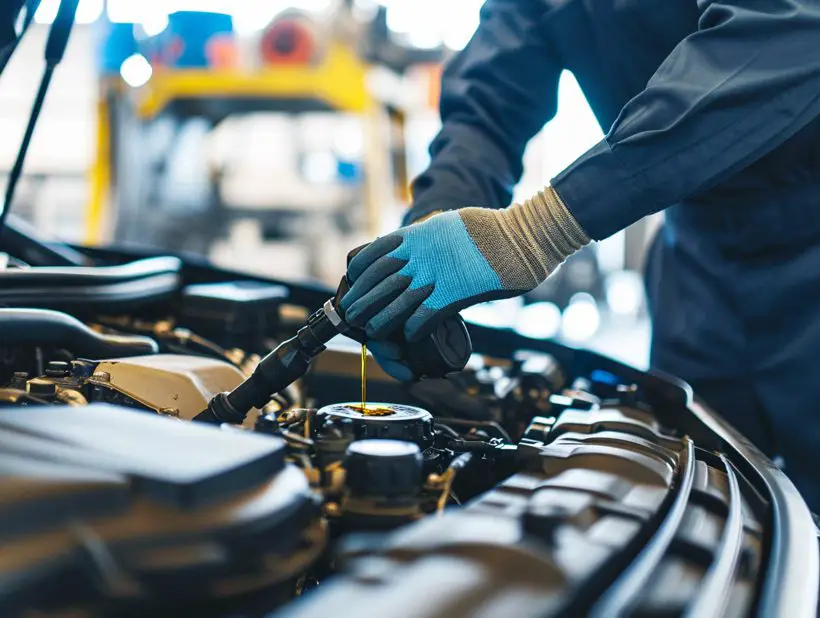
Normal Oil Usage
Every car uses a certain amount of oil to lubricate and cool engine parts, seal piston rings, and maintain optimal engine performance. It’s perfectly normal for your car to consume a small amount of oil between oil changes.
Excessive Oil Consumption: Possible Causes
- Worn Engine Parts: Over time, engine components such as piston rings, valve seals, and cylinder walls may wear down, creating gaps through which oil can seep into the combustion chamber and burn off.
- Oil Viscosity: If the oil in your engine is too thin, it can lead to higher oil consumption. Always make sure you’re using the correct viscosity oil for your car as specified in your owner’s manual.
- Driving Habits: Aggressive driving and frequent short trips can exacerbate oil consumption as your engine doesn’t fully warm up, which may increase wear on engine parts.
Ensuring your car’s health involves monitoring and reacting to oil consumption appropriately. Take note of any sudden changes in oil levels and understand that while some oil loss is expected, significant decreases signal a need for a deeper look into your engine’s well-being. Regular maintenance is vital to mitigate normal wear and tear and keep oil consumption at a stable level. Remember, proactive care is paramount to extending the life of your engine and avoiding costly repairs down the line.
Worn Engine Components
When I delve into the potential reasons why a car might be burning oil, one key area I often examine is the condition of various engine components. Over time and with regular use, these parts can degrade, leading to increased oil consumption.
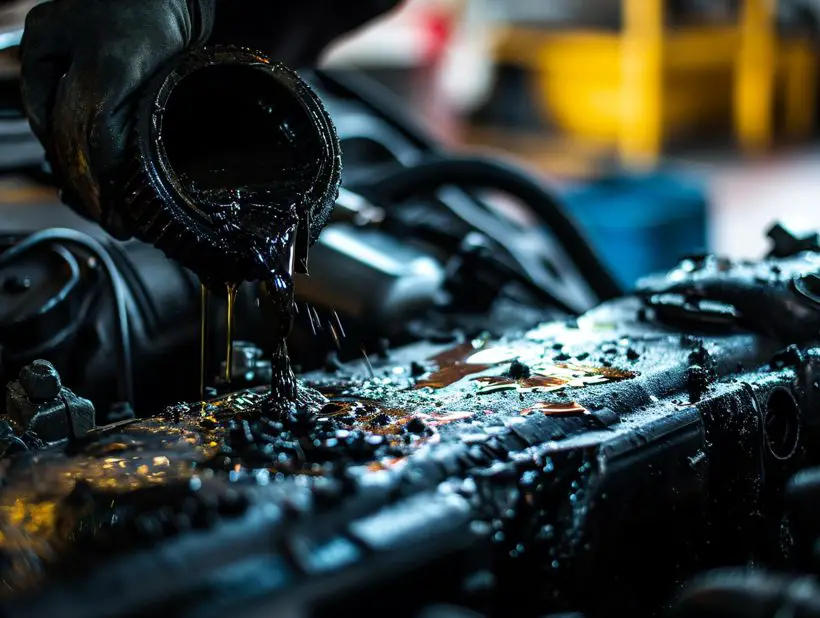
Pistons and Piston Rings have a direct role in maintaining the oil within the engine. If they become worn or damaged, oil can seep into the combustion chamber and burn off. Symptoms of faulty piston rings include blue smoke from the exhaust and a noticeable decrease in engine performance.
Valve Seals and Guides are also crucial. They control the flow of oil and help maintain pressure within the engine. When these seals wear out, oil leaks into the combustion area, contributing to oil burn-off. Leaking valve seals often result in blue smoke upon starting the engine after it’s been idle.
Let’s not overlook the Crankcase Ventilation System (PCV). This system is designed to regulate and remove fumes from the engine. A malfunctioning PCV system might cause oil to enter the air intake, leading to increased consumption.
Here are some critical details regarding the impact of worn engine components:
| Component | Potential Issue | Symptom |
|---|---|---|
| Piston Rings | Allow oil into combustion chamber | Blue smoke, loss of power |
| Valve Seals and Guides | Oil leaks into combustion chamber | Blue smoke at startup |
| PCV System | Oil enters the air intake | Increased oil consumption |
By keeping track of these parts and their condition, I can often predict and prevent high oil consumption before it becomes a bigger issue. Regular check-ups are essential, and I highly recommend having your car looked at if you notice any of the symptoms mentioned. Early intervention can save you from costlier repairs down the line.
Leaks and Seals
When I notice my car seems to be burning through oil, one of the first places I look for issues is around leaks and seals. A vehicle’s engine is designed with numerous seals and gaskets that work to keep oil contained within its designated pathways. Over time, however, wear and exposure to extreme temperatures can degrade these barriers, leading to oil leaks.
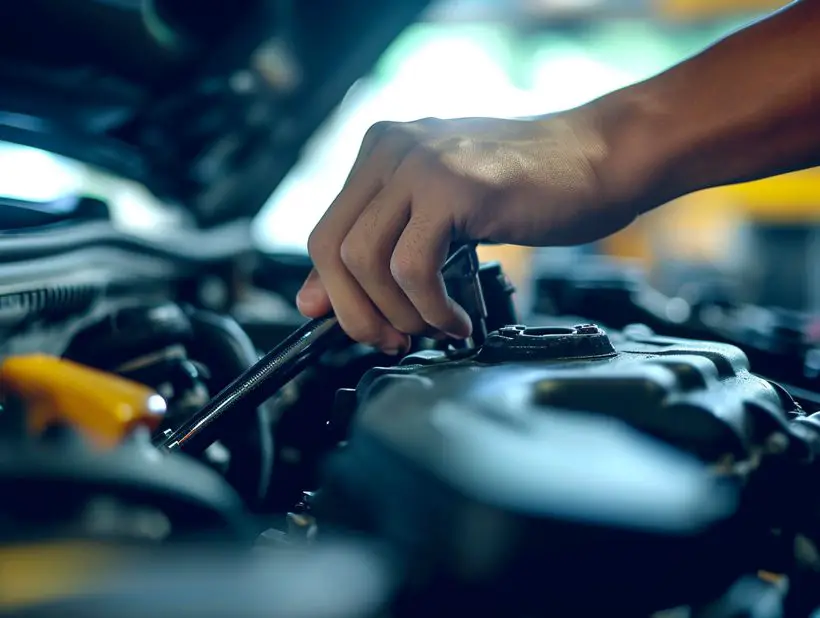
Identifying leaks is often straightforward. I look for signs of oil on the ground where I park or a greasy residue on engine parts. Common areas for leaks include:
- Valve cover gaskets
- Oil pan seals
- Timing cover seals
- Front and rear main seals
When checking for leaks, I also examine the oil filter and the oil cap. A loose oil cap or a poorly fitted oil filter can sometimes mimic more serious engine problems.
If the seals are not the culprit, engine gaskets may be to blame. They serve as the essential bonding surfaces between various engine components. Like seals, they are susceptible to deterioration. A failed head gasket, for instance, allows oil to escape and can lead to significant engine damage if not addressed promptly.
Regular maintenance can prevent the degradation of seals and gaskets. One preventive measure involves keeping the engine clean to spot leaks easily. This also avoids dirt buildup, which can exacerbate leaks and make them harder to seal. I always recommend using the right type and quality of oil for your car since some oils have additives that can extend the life of engine seals.
- Regularly inspect seals for wear or damage
- Look for oil spots or puddles under the car
- Check oil levels frequently to monitor for sudden drops
- Schedule routine maintenance and seek professional inspections if leaks are suspected
Overheating and Oil Dilution
When diving into the reasons why a car might start burning oil, overheating stands out as a potential culprit. Overheating can cause oil to thin, reducing its lubricating properties and leading to increased oil consumption. In my experience, an overheated engine usually points toward a faulty cooling system. Things like a broken thermostat, clogged radiator, or issues with the water pump can trigger such a problem. When the engine overheats, it puts extra stress on all its parts, including those responsible for maintaining the oil within the engine.
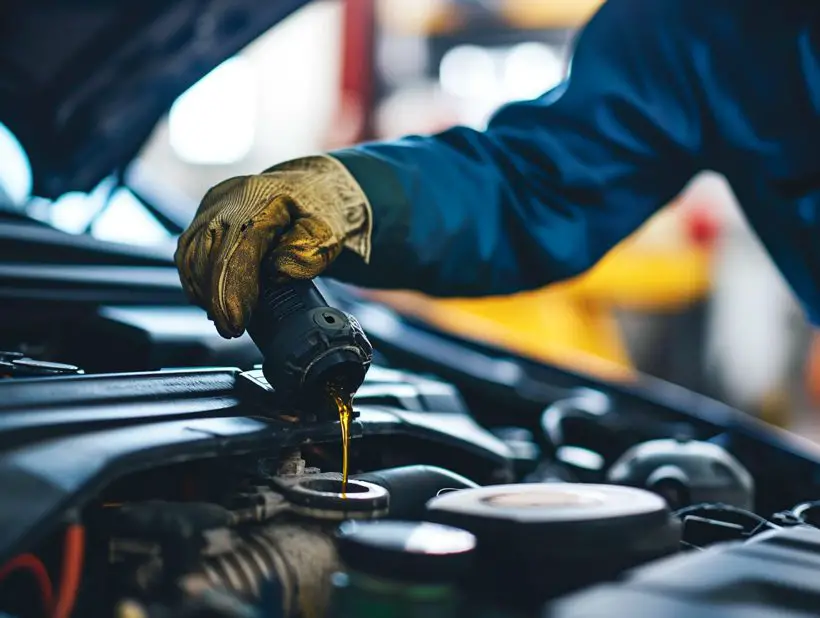
Another aspect that’s crucial to consider is oil dilution. This happens when fuel mixes with the engine oil, causing the oil to become less viscous. Oil dilution mainly occurs in cars with gasoline direct injection (GDI) engines where fuel is injected directly into the combustion chamber. Here are the main consequences of oil dilution:
- Reduced oil viscosity
- Impaired lubrication
- Increased volatility
- Higher oil consumption
The symptoms of oil dilution might not always be obvious but paying attention to your car’s performance can give you some hints. If you’re noticing a decrease in fuel economy or your oil level seems to be inexplicably dropping, it’s worth investigating for oil dilution. Additionally, if you’ve got a check engine light that comes on sporadically, it‚Äôs a signal to get things checked out.
Being proactive is key in dealing with both overheating and oil dilution. Regular checks of your car‚Äôs cooling system and oil quality can save a great deal of trouble down the line. For those who may not be mechanically inclined, seeking assistance from a trusted mechanic is always a wise choice. They can perform diagnostic tests and inspect your vehicle for any signs of dilution or system malfunctions that could be leading to oil consumption issues. Maintaining your vehicle according to the manufacturer’s specifications can drastically reduce the chances of encountering these problems. Regularly scheduled maintenance is the cornerstone of car care and should not be overlooked.
Maintenance and Prevention
Proper maintenance is critical to prevent a car from burning excessive amounts of oil. Regular oil changes are paramount. I can’t stress enough how vital it is to follow the manufacturer’s recommended schedule for oil and filter changes.
Here’s a breakdown of key maintenance steps that I’ve learned can help car owners minimize oil consumption:
- Check the Oil Level Regularly: At least once a month, or even more frequently if I notice my car has started to consume oil quickly.
- Use the Correct Oil: Ensure that I’m using the type and viscosity of oil recommended by my car’s manufacturer as it can greatly influence consumption.
- Change Oil Filters: Replace oil filters with every oil change to prevent contaminants from causing wear.
- Keep an Eye on Engine Temperature: Overheating can accelerate oil consumption, so I make sure my cooling system is in top shape.
- Monitor Engine Performance: A well-tuned engine uses oil more efficiently.

Another aspect to consider is that as my car ages, so do the engine and its components. Worn parts can lead to increased oil consumption. In this case, I would recommend a thorough inspection by a qualified mechanic who can identify parts that may need replacement, such as:
- Piston rings
- Valve seals
- PCV valves
Addressing these components can sometimes reduce oil consumption significantly.
Moreover, advancements in car technology often lead to more sophisticated engines with their own set of maintenance requirements. For cars with gasoline direct injection engines, for instance, I pay extra attention to oil dilution by checking oil condition more frequently.
While I’m vigilant with maintenance and regular checks, I also understand the importance of driving habits. Aggressive driving can lead to higher engine load and, consequently, increased oil consumption. Slowing down a little and driving smoothly can not only prolong engine life but also keep oil consumption in check.
Let’s consider some preventative measures as well:
- Ensuring proper engine lubrication
- Using high-quality fuel to avoid contaminants
- Avoiding short trips that prevent the engine from reaching optimal operating temperature
By being studious with vehicle maintenance, I can often preclude the issue of my car burning oil before it becomes a significant problem. Regular service checks and a bit of TLC go a long way in maintaining my car’s health.
Conclusion
Understanding why my car is burning oil has been an eye-opener. It’s clear that staying on top of maintenance and addressing wear and tear are key to keeping my vehicle running smoothly. I’ve learned that it’s not just about the occasional oil change; it’s about being vigilant with oil levels and the quality of oil and parts I use. By adopting better driving habits and investing in quality fuel, I’m confident I can minimize oil consumption and extend the life of my engine. Regular checks by a professional mechanic will ensure any potential issues are caught early. It’s all about proactive care to keep my car in top condition.
